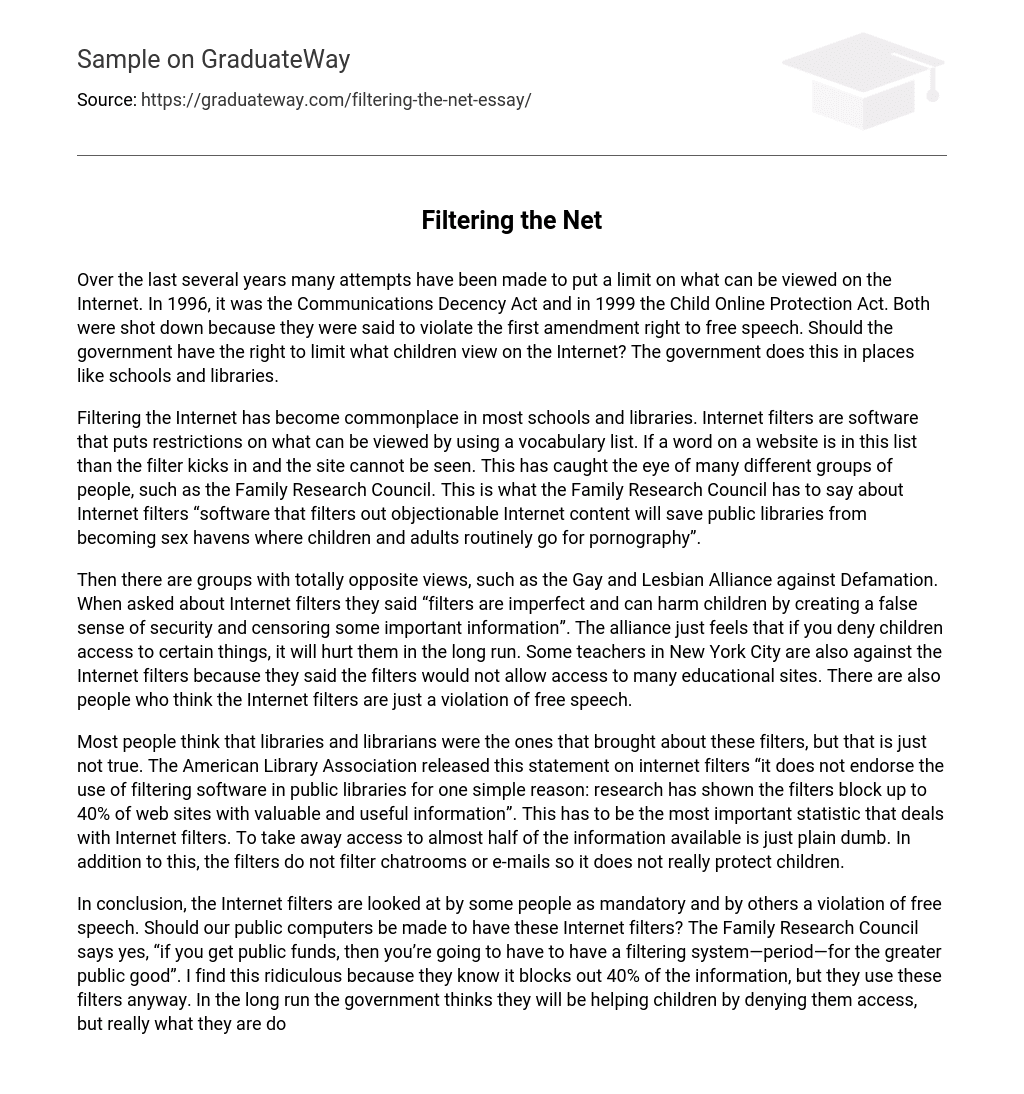Over the last several years many attempts have been made to put a limit on what can be viewed on the Internet. In 1996, it was the Communications Decency Act and in 1999 the Child Online Protection Act. Both were shot down because they were said to violate the first amendment right to free speech. Should the government have the right to limit what children view on the Internet? The government does this in places like schools and libraries.
Filtering the Internet has become commonplace in most schools and libraries. Internet filters are software that puts restrictions on what can be viewed by using a vocabulary list. If a word on a website is in this list than the filter kicks in and the site cannot be seen. This has caught the eye of many different groups of people, such as the Family Research Council. This is what the Family Research Council has to say about Internet filters “software that filters out objectionable Internet content will save public libraries from becoming sex havens where children and adults routinely go for pornography”.
Then there are groups with totally opposite views, such as the Gay and Lesbian Alliance against Defamation. When asked about Internet filters they said “filters are imperfect and can harm children by creating a false sense of security and censoring some important information”. The alliance just feels that if you deny children access to certain things, it will hurt them in the long run. Some teachers in New York City are also against the Internet filters because they said the filters would not allow access to many educational sites. There are also people who think the Internet filters are just a violation of free speech.
Most people think that libraries and librarians were the ones that brought about these filters, but that is just not true. The American Library Association released this statement on internet filters “it does not endorse the use of filtering software in public libraries for one simple reason: research has shown the filters block up to 40% of web sites with valuable and useful information”. This has to be the most important statistic that deals with Internet filters. To take away access to almost half of the information available is just plain dumb. In addition to this, the filters do not filter chatrooms or e-mails so it does not really protect children.
In conclusion, the Internet filters are looked at by some people as mandatory and by others a violation of free speech. Should our public computers be made to have these Internet filters? The Family Research Council says yes, “if you get public funds, then you’re going to have to have a filtering system—period—for the greater public good”. I find this ridiculous because they know it blocks out 40% of the information, but they use these filters anyway. In the long run the government thinks they will be helping children by denying them access, but really what they are doing is denying them an education.





